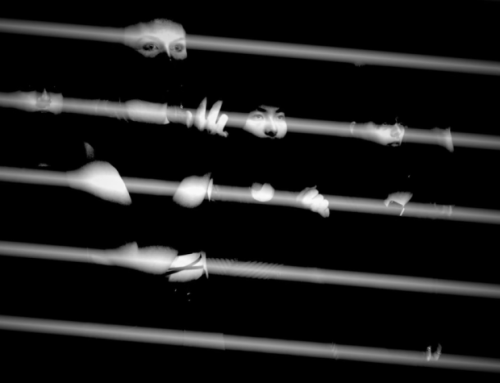 by Jessica Tamar Snir
by Jessica Tamar Snir
Jonathan Lethem’s Motherless Brooklyn is an unconventional murder mystery novel told from the perspective of the protagonist, Lionel Essrog, an eccentric private detective living with Tourette Syndrome. The opening passage, beautifully entwined with a complex array evocative metaphors and similes, serves to not only describe the pathophysiological nature of Lionel’s condition but also to provide the reader with deep insight into his embodied lived experience.
“Context is everything. Dress me up and see. I’m a carnival barker, an auctioneer, a downtown performance artist, a speaker in tongues, a senator drunk on filibuster. I’ve got Tourette’s.”
These introductory sentences give the reader a vital understanding of the particular way that Lionel self-identifies and relates to his own condition. He frames Tourette Syndrome from a social constructionist framework whereby the condition is defined by the social meaning that is ascribed upon it rather than by the underlying biological dysfunction. (2) This overarching conceptual framework is neatly distilled into the first three words of the passage- context is everything. Lionel continues by addressing the reader directly, instructing them to conjure up their own mental imagery of a list of characters; the carnival barker, auctioneer, downtown performance artist, speaker in tongues, a senator drunk on filibuster. While initially, these personas appear to be wildly dissimilar, each loaded with their own unique social connotations, upon closer inspection it soon becomes apparent that they are all strung together by their shared reliance upon the faculty of speech. However, this commonality is not just any form of speech but rather exaggerated, performative, distorted or incomprehensible forms of speech. It is only now, once Lionel has led the reader’s mind to contemplate the importance of social context in interpreting the meaning of any given outward physical phenomenon, that Lionel first discloses that he has Tourette Syndrome: a state that, too, is characterized by unusual manifestations of speech.
Once this conceptual groundwork has been laid, Lionel progresses into describing his experience of his physiological symptoms. From a purely medical standpoint, Tourette Syndrome is defined as a neurological condition characterized by rapid, repetitive and involuntary muscle movements and vocalizations known as “tics”. (3) Each component of this biomedical definition is evocatively portrayed in Lionel’s rich descriptions.
Speed
“…the words rush out of the cornucopia of my brain to course over the surface of the world, tickling reality like fingers on piano keys. Caressing, nudging.”
Speed is portrayed in the redolent description of Lionel’s words rushing out of his brain and coursing through the external world. The curious choice of the word cornucopia, a horn-shaped vessel overflowing with beautiful produce, used to describe this action serves to emphasize the overflowing abundance of words being funneled out from the confined space of his mind.
Repetitiveness
“My mouth won’t quit, though mostly I whisper or subvocalize like I’m reading aloud, my Adam’s apple bobbing, jaw muscle beating like a miniature heart under my cheek, the noise suppressed silently, mere ghosts of themselves, husks empty of breath and tone.”
Next, the repetitive nature of the muscle movements is portrayed through the evocative imagery of a mouth which won’t quit, an Adam’s apple bobbing up and down, seemingly like a buoy in the expansive ocean, and jaw muscles contracting and releasing to the rhythmic and predictable beat of a heart.
Involuntariness
Finally, Lionel demonstrates the involuntary nature of Tourette Syndrome by framing both the muscular and speech components of the conditions as entities separated from himself. He breaks down the condition into its biological component parts- the mouth, the Adam’s apple and the jaw muscles. In this way, these structures have been endowed with a sense of autonomy beyond Lionel’s control as the overarching organism. What’s left is a moving mouth, a bobbing Adam’s apple and beating jaw muscles each operating independently according to their own volition yet working in tandem to produce Lionel’s characteristic speech.
The resulting words produced from this factory line operation have, too, taken on their own sense of sovereignty. In fact, the major component of the passage is framed to tell the tale from their perspective rather than directly from Lionel’s point of view.
The Pacifists
“They’re an invisible army on a peacekeeping mission, a peaceable horde. They mean no harm. They placate, interpret, massage. Everywhere they’re smoothing down imperfections, putting hairs in place, putting ducks in a row, replacing divots. Counting and polishing the silver. Patting old ladies gently on the behind, eliciting a giggle.”
Lionel’s words have been anthropomorphized and imbued with a complex set of personalities. Originally they are depicted as being suppressed, contained and stifled to the point where they are mere ghosts of themselves. This stringent disciplinary regime is rendered justified as it generates an invisible army on a peacekeeping mission who altruistically work behind the scenes to smooth the rough edges of the world. In their weakened state Lionel’s words are positively portrayed as harmless pacifists who caress, placate and massage.
The Rebels
“Only – here’s the rub – when they find too much perfection, when the surface is already buffed smooth, the ducks already orderly, the old ladies complacent, then my little army rebels, breaks into the stores. Reality needs a prick here and there, the carpet needs a flaw. My words begin plucking at threads nervously, seeking purchase, a weak point, a vulnerable ear. That’s when it comes, the urge to shout in the church, the nursery, the crowded movie house. It’s an itch at first. Inconsequential. But that itch is soon a torrent behind a straining damn. Noah’s flood. That itch is my whole life. Here it comes now. Cover your ears. Build an ark.
However, when Lionel’s words begin to fidget and step out of line, slowly building up their power and brute force, the unruly words eventually dominate over any remaining resistance like a torrent behind a straining damn. Eventually the damn collapses and the words reign supreme, unleashing mayhem upon the external world like the destructive waters of Noah’s flood.
Passability
Again, these dichotomous portrayals of good obedience versus bad disobedience emphasize Lionel’s social constructionist perspective towards his condition. The severity and nature of his Tourette Syndrome is, here, determined by the extent to which his internal experiences of living with the condition is exposed to the outside. In their so-called diminished form, Lionel’s obedient and contained words are able to skim the surface of the external world, only tickling reality like fingers on a piano, thereby going unnoticed and, therefore, unjudged by passers-by. This depiction alludes to concept of passability, a state whereby an individual is outwardly perceived as being ‘normal’, whether that be in terms of gender, sexuality, ethnicity or, in this case, health status, despite truly deviating from this perceived identity. Therefore, Lionel’s residency in the world of the healthy is threatened when his words dissent and visibly wreak havoc on the external world. When it is just an itch, and still contained, it is inconsequential, however, Lionel ultimately transitions into the realm of illness when that itch builds into a full-blown vocalization and is seen shouting inappropriately in public spaces that uphold the social norm of silence such as churches, nurseries and crowded movie houses.
Self-identity
“If I were a Dick Tracy villain, I’d have to be Mumbles.”
Despite being initially portrayed as an entity somewhat separated from himself, Tourette Syndrome is ultimately shown to be an overwhelming component of Lionel’s overall identity. His self-identification with the character Mumbles from the American detective comic strip Dick Tracy is a comical yet immensely self-deprecating popular culture reference. Mumbles, a gangster and mortal enemy of police detective Dick Tracey, is consistently portrayed as a mumbling, incomprehensible fool who easily succumbs to the interrogations of tough and intelligent Dick Tracy. Despite being a professional private detective himself, Lionel’s identification with Mumbles instead of Dick Tracey serves to highlight the weight he ascribes to his Tourette Syndrome over other significant aspects of his identity.
The overbearing influence of Tourette Syndrome on Lionel’s sense of self is neatly encapsulated in one of Lionel’s concluding sentences:
“That itch is my whole life.”





